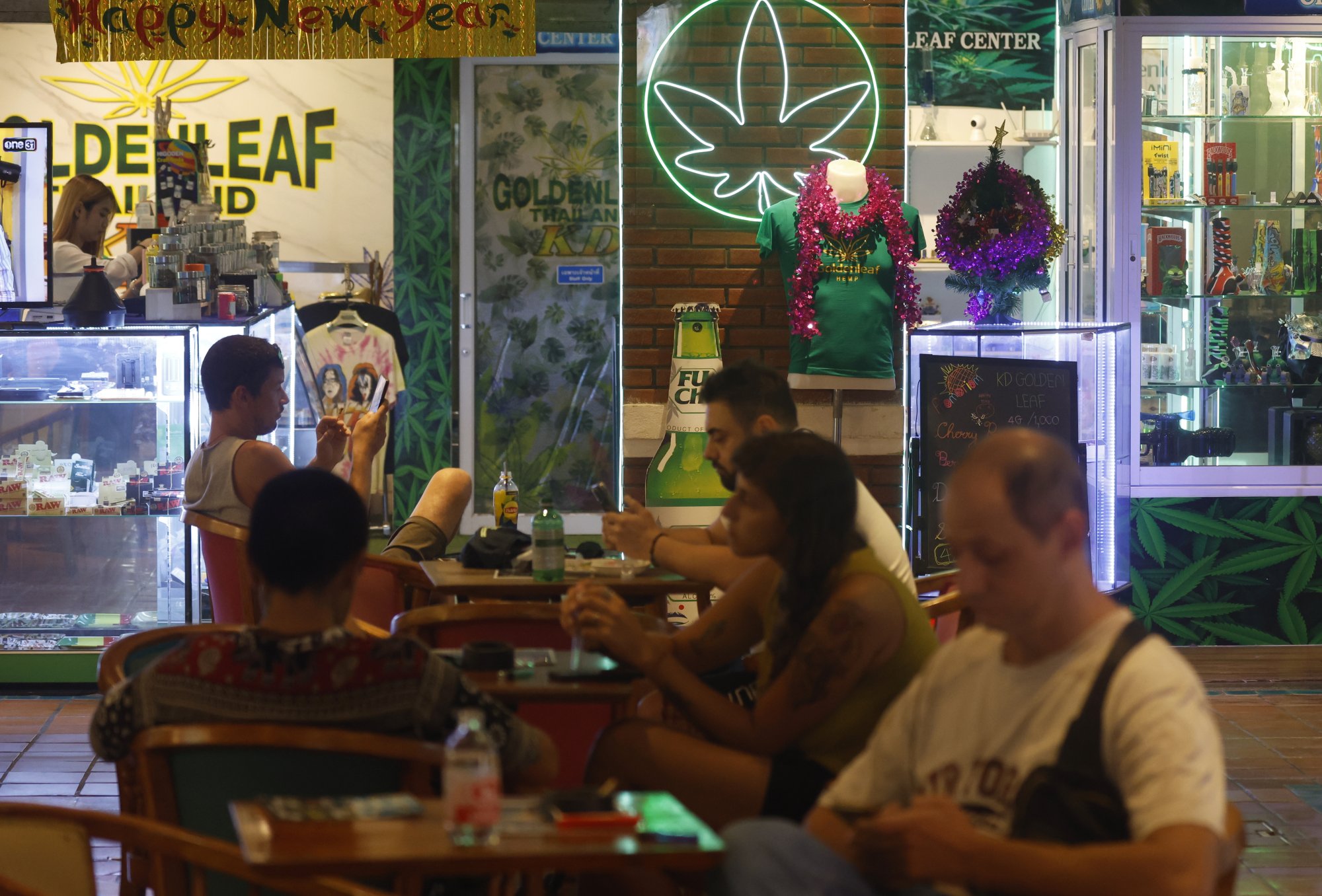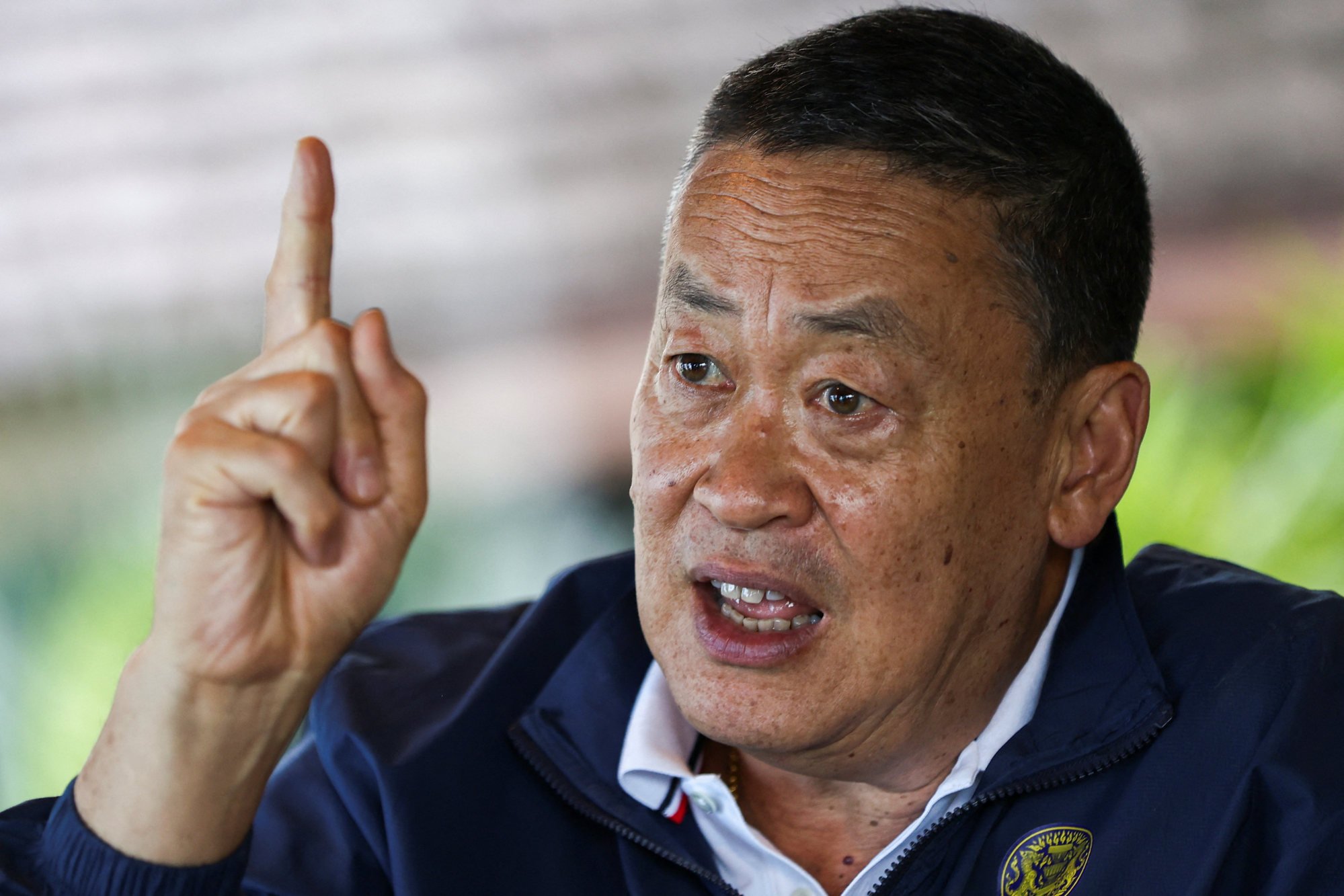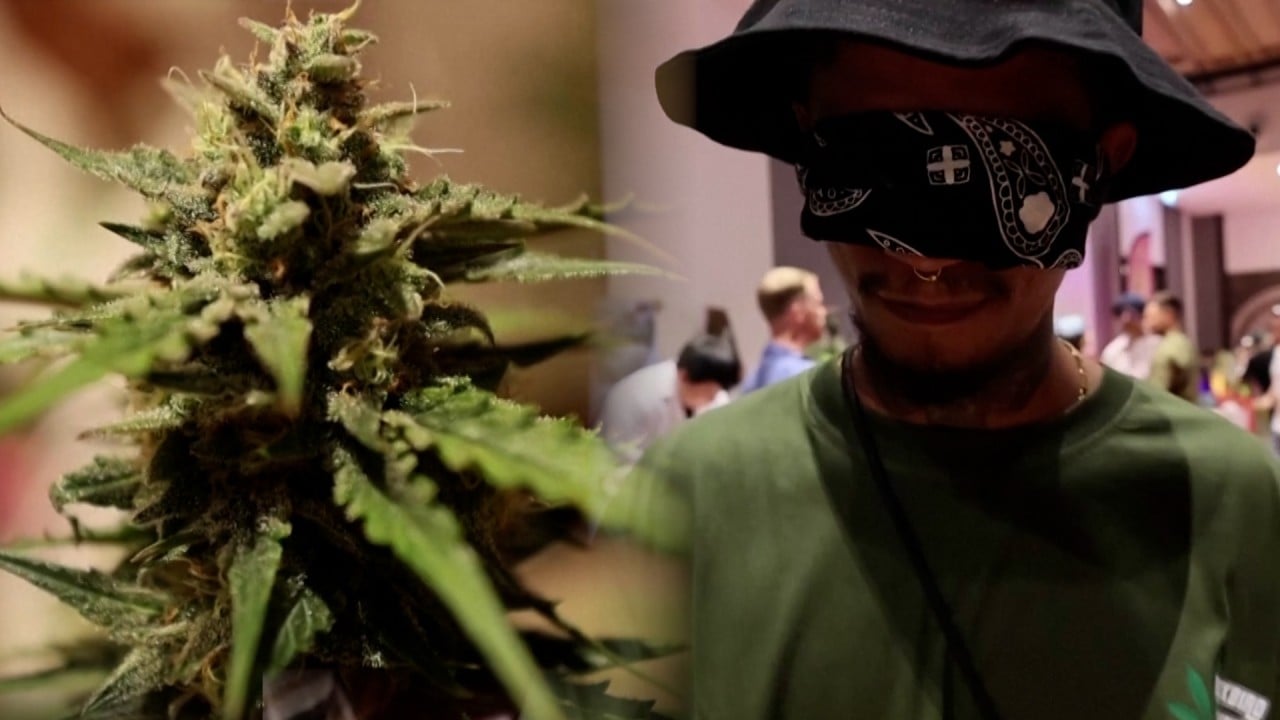“They drive the prices down and buy at 40 baht (US$1.10) per kilo from us at the farm, but sell at 400 baht per kilo at their shopfronts.”
It is a far cry from the multimillion-dollar dividends promised to ordinary Thais when Health Minister Anutin Charnvirakul first pushed for cannabis decriminalisation several years ago – a move that surprised many considering Thailand’s long history of harsh punishments for drug-related offences, including cannabis possession.

Farm gate prices have now collapsed as supply outstrips demand, something local cannabis entrepreneurs attributed to the excess buds from giant US grow rooms illegally entering the Thai supply chain.
Srettha this week said he will order the Health Ministry to list cannabis as a narcotic again by the end of 2024, ending the two-year recreational free-for-all that ensued after the drug was decriminalised without any adjoining legislation to regulate its exact usage.
The ministry will reclassify cannabis as a “category five” narcotic, which makes it a crime to possess and consume, Srettha said in a post on social media platform X on Wednesday.
That is likely to dismay the hordes of weed-smoking Thais and tourists, who trail clouds of pungent smoke outside dispensaries in Bangkok, Phuket and Pattaya, as well as the other businesses that have cropped up to take advantage of the booming market for recreational weed.
Anutin, who drove the opening up of the weed law under the former military-steered government before becoming the current administration’s interior minister, warned on Thursday that foreigners running weed shops in Phuket “must be arrested” as cannabis is tucked back under the law.
Srettha appears set on the reclassification, a campaign pledge by his Pheu Thai party, which lost the last election in 2023 but emerged as the head of a coalition government after the election-winning reformers from the Move Forward Party were blocked from office.

Pheu Thai has a long history of advocating zero-tolerance drug policies, which plays well in its rural base where narcotics – especially methamphetamine – have gutted many communities.
Yet in the see-saw world of Thai political messaging, free weed advocates doubt Srettha’s vow will come into fruition – or will be enforceable even if it does.
At the same time, Srettha may be forced into softening his stance by the political capital – and hard cash – already spent on the cannabis sector.
“The prime minister does not exist in a vacuum,” said Tian Scherer, founder of Thai Budtender Academy, which trains shops in the cannabis business and staff in selling the product.
“The Thai cannabis industry has been valued at 43 billion baht by 2025. There are many powerful Thai and foreign investors involved and there is work in motion for Thailand to become a player in the global medicinal market, exporting quality flowers at low cost.”
Others question how enforcement will be possible in a country where it is now common to walk down main roads that have a thriving cannabis dispensary every 20 metres, each advertising bargain prices of 100 baht a gram for high strength strains.
The legal mess stems from the failure of the successive governments to pass a Cannabis Act to regulate recreational weed smoking, advocates say.
But it may be too late to put the genie back in the bottle.
Under the current decriminalisation rules, cannabis products must not contain more than 0.2 per cent tetrahydrocannabinol (THC) – the psychoactive compound that gives users a “high” – to be considered legal. Yet shops openly advertise strains with 15-20 per cent THC content.
“It’s baffling the government hasn’t tried to tax it or take the money to be made from tourists,” says Piyatida, the cannabis plant cultivator.
For one cannabis entrepreneur – who requested anonymity as he exits the business – the will-they-won’t-they of banning weed has already consumed too much money and time.
“Good! I can’t wait. It’s such a mess right now,” he told This Week in Asia of Srettha’s promise. “Foreigners are the only people making money. Thais are stuck in a shambles. We’re just trying to hold on these days but we’re not making money for sure.”
With additional reporting from Bloomberg


